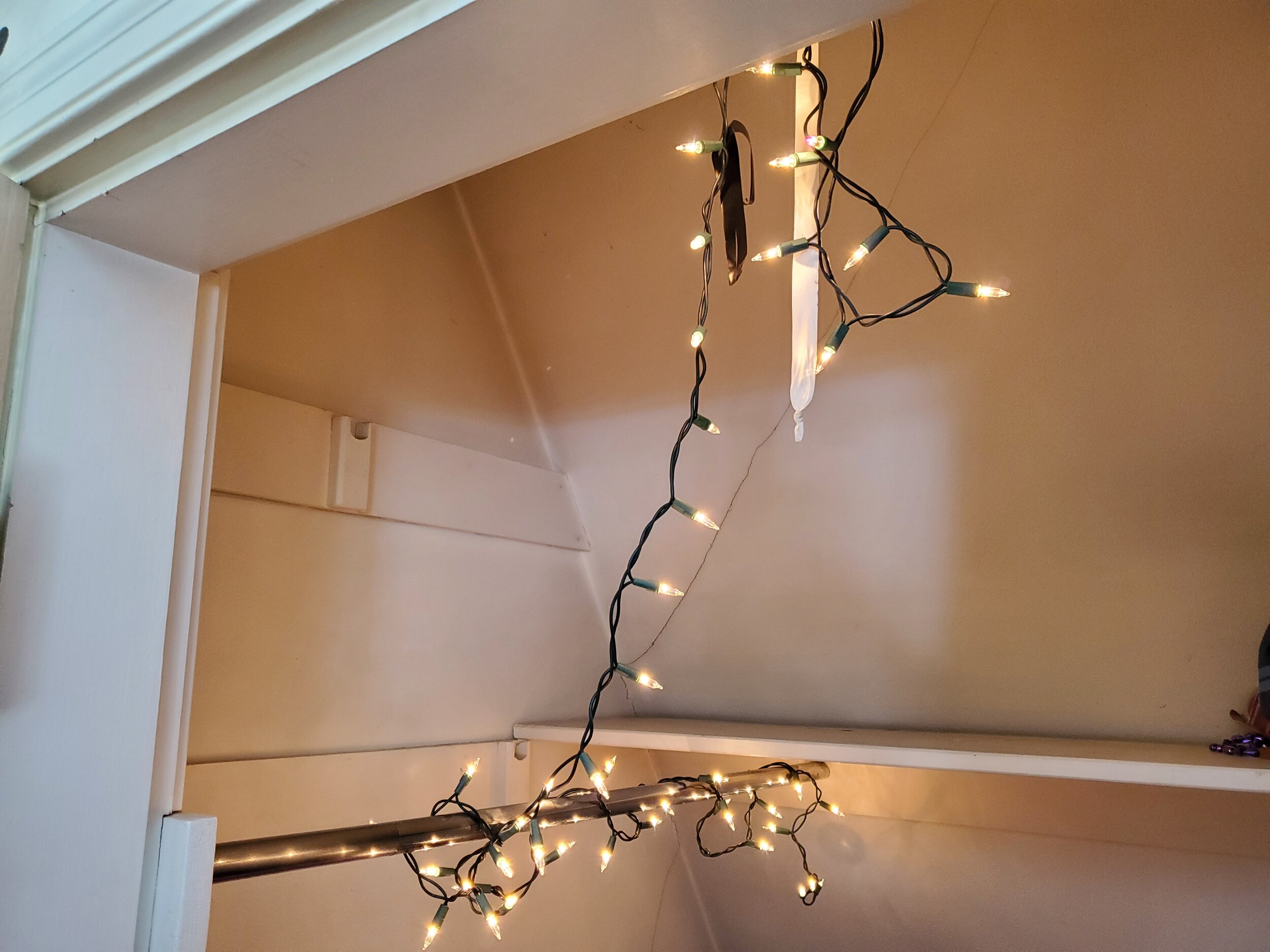
Downtown Winchester has houses of every shape and size.
You’re Supposed to be Learning
A couple of years ago I inspected a 1940s era single-family home here in Winchester that had been a college rental for a number of years. In a break from convention, one of the tenants felt it his duty give me a tour of the house during the inspection. As I came to find out, he was the most senior member of the household and the keeper of all the legend and lore specific to that quasi-fraternal domicile. (The House had invented some sort of game that involved using lawn darts inside and there was a board with tally marks in the kitchen. I didn’t ask about the specifics.)
Having once been in my early twenties, I suspected my guide and his housemates hadn’t undertaken a close reading their rental agreement; and by giving me, the inspector, a guided tour, he’d be able to dispel any incorrect perception I might form about the current condition of the house.
Amid a flurry of disclaimers, it quickly became apparent that, like many involved in serious academic pursuit, activities such as getting the trash all the way to the trashcan and washing, well, anything, were cast off as distractions to enlightenment. Likewise, the custom of storing underwear in drawers or laundry baskets was no restrictive imposition here where the soft glow from the liquor bottles filled with highlighter water illuminated this solemn study hall day and night.
When we reached the air-handler in the basement / rec room (more lawn darts and they must have been changing their own oil because I saw several funnels lying about), my guide, whose suspicion of me had been growing since I had pointed out a broken window pane in the living room, proudly proclaimed that he had been putting in a new filter every month.
Sure enough, he had been.
The trouble was that he hadn’t been taking any out, and the old, wet filters down in the return air plenum were harboring a sufficient amount of mold to make my sinus passages contort in immediate protest.
Holding my breath, it didn’t take long to determine that at least part of the problem was that the bracket for the filter had broken and the condensate drainage was blocked; and I suspect that soon after being installed the quickly-sodden filter would fall, leaving a space for a new filter the following month.
Unlike Dean Wormer in Animal House, I had no authority to impose double-secret probation. I did later, however, strongly suggest that the Christmas lights over the shower come down.

College rentals can have a tough existence.
Property Designs, Features, and Practices That Make or Break Rentals
I don’t own any rental properties, but I have inspected innumerable townhouses, single-family homes, and condos that had either been rentals or were being purchased to be rented out.
These properties, like real estate generally, come in all shapes, sizes, ages, and conditions. Some need a little paint and some new fixtures, and others remind me of pictures I’ve seen of London during the Blitz.
Now, this is not a blog about price-points, rental agreements, or vetting potential renters.
This blog is about property designs, features, and practices that are either helpful or problematic based on my experience inspecting rentals. I am aware too that renters are all different and that it is far less likely that a retirement-age couple will be hanging Christmas lights over the shower; nevertheless, the following are lists of liabilities I have seen, balanced by good practices that keep tenants and houses safe.
Avoid These 5 Things In A Rental
1. Avoid historic houses. I love old homes, the skill that went into them and their design features, but skipping over lead paint, crummy old piping, asbestos, and wiring that may be innovative at the expense of not being super safe can save a lot of headaches.
2. Steer clear of elevated decks and balconies. Sure, any outdoor structure can be rotten but the chance of serious injury is dramatically lower for on-grade decks or no decking at all. Remember, pressure treated lumber forestalls deterioration, it is not an invincibility shield against weather.
3. Forgo appliances with an open flame – because they have open flames. Be reasonable. If you pick up a townhouse with a brand-new gas furnace don’t chuck it. The house that is perfectly safe does not exist, but I see more back-drafting water heater and scorched furnaces in rentals than elsewhere. And no fireplaces: wood, propane, or gas. Don’t invite renters to start fires.
4. Regarding appliances generally, newer base/entry models seem to fare the best. These models don’t have extra electronics that break and in some cases are easier to repair if broken. Let anything that is past its service life go. Buying new appliances might not be an exciting expense, but broken appliances invite untrained ingenuity. You don’t want your tenant screwing a screen door latch onto a dryer with a broken door or heating the kitchen with an open oven because the baseboard heater is kaput. No, I didn’t make these up.
5. Think hard about buying a unit on a crawlspace or an older cellar-style basement. These foundations tend to get moldy and damp if the water management around the house isn’t perfect. In rentals they can also become a no-man’s-land of old tires, broken recreational equipment, and trash. Finished basements typically get light to moderate use but the temptation to turn unfinished basements into living space they were never intended to be is more than some renters can resist. Slab construction is preferred because it is as close to being indestructible you can get and less prone to water-based deterioration.

Well, at least these aren’t over a bathtub.
4 Good Practices For Rentals
1. Have an electrician or home inspector ensure that a given unit has the necessary electrical safety features, including smoke and carbon monoxide detectors. Water leaks are costly and damaging. Roofs and HVAC are expensive, but don’t gamble with electricity. Pay a pro to find what you don’t know and fix it. Period.
The rental I mentioned at the outset had a single smoke detector that had been pillaged for its nine volt battery.
2. Make sure exterior doors and windows function. One of the reasons I don’t recommend historic homes as rentals is because they often have doors and windows that don’t work or, alternatively, latch. Windows and doors that don’t work present fire safety and security risks.
3. When considering a given unit as a whole, remember that simple is boring but functional and typically easier to fix. Two sided roofs without valleys, dormer bump-outs, or hips are less expensive to replace. Patios aren’t as grand as decks, but I don’t ever recall seeing a news story about a patio collapsing during a St. Patrick’s Day celebration. Soaker tubs aren’t as listing-friendly as whirlpool tubs, but they don’t grow mold leviathans.
4. Have a well-qualified home inspector inspect the property before you buy it and schedule periodic inspections during the tenure of a tenant. Home Inspectors are going to inspect all the major systems of a house and they are a third party concerned about safety. A hardworking inspector is also going to help prioritize any repairs needed. This can help smooth out wrangling between tenant and landlord. Finally, even though I’ve yet to meet a home inspector who can see the future, the savvy ones I know often find conditions that a buyer, owner, or tenant would not have noticed until it became a big, expensive problem. It might not make your day to hear that the water heater is starting to leak, but if it is over finished space you may have just saved a grand.

Ground-fault protection is a cornerstone of modern electrical safety.
The Takeaway
Unlike the well-worn but formerly charming rental I inspected, my college dorm was a cinder-block bunker with aluminum windows that didn’t work and a concrete floor; and somehow it was a luxury suite compared to the dorms where the furniture was literally bolted to the floor. Rentals do not have to be this spartan or correctional, but the point is that when you provide housing for someone you need to prioritize safety. This goal is more easily accomplished with some buildings than others. A townhouse on a crawlspace in a flood plain might be cheap to buy, but it might also be expensive to maintain. A historic house a stone’s throw from downtown might be a bargain …and piñata full of liabilities. As I have advocated elsewhere, arm yourself with dedicated professionals who will help ensure future success and minimize risk.
-Joe
